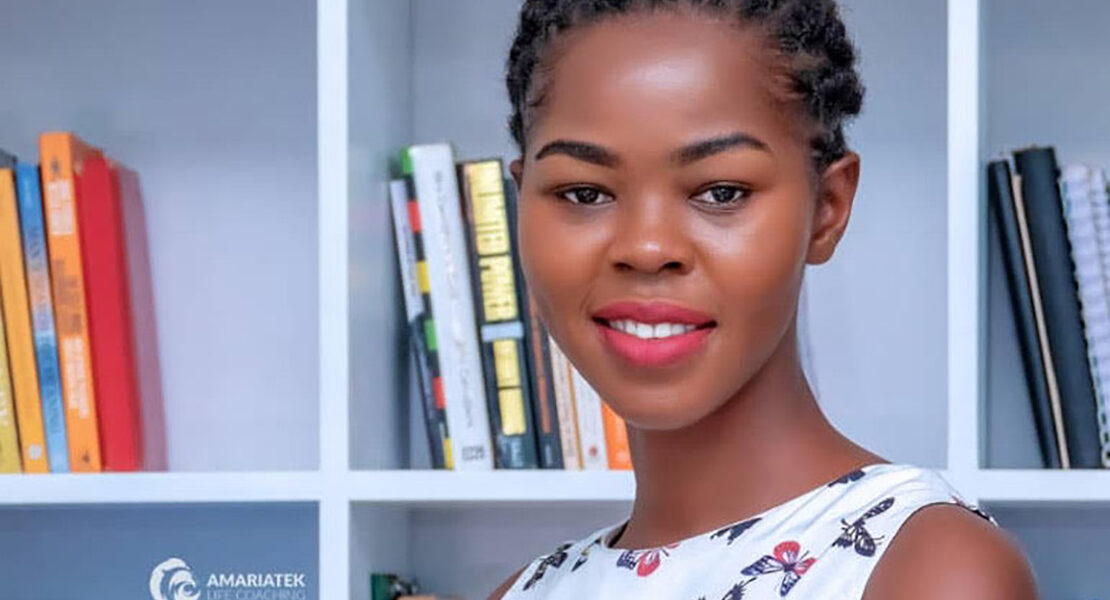After losing her mother at 5 years of age, Linda Abeja’s world crumbled and the safest place she found was inside her head where reality and presence were never given a chance to happen. This not only affected her performance in school but her personal relations too.
Abeja’s world of possibilities started to emerge after she met a life coach who helped her process her childhood trauma and move forward to be an incredible life coach she is today.
Statistics on mental health among young people in Uganda indicate that 21% of secondary school students suffer from mental health disorders and 26.6% deal with anxiety. The reports also indicate that the mental health issues are more prevalent in females at 29.7% than their male counterparts.
These alarming numbers are highly attributed to lack of access to youth-friendly information on mental health and services like counselling. This is worsened by the stigma around metal health disorders and subsequently, the process of seeking professional help.
To be a contributor to the change she hopes for and a chance she wishes for every youth struggling with mental health issues, low self-esteem, stalling career paths among other issues, the 30-year-old visionary has established Amariatek Life Coaching, a company that focuses on enhancing the productivity of human resource in Uganda and Africa through empowering individuals and organizations with creative means of navigating various spheres of their lives.
The name Amariatek was derived from an afro-centric Luo word “amari atek” which means “I love you so much.”
Amariatek aims at helping individuals develop high-level transferable cognitive skills such as problem-solving, critical thinking, creativity, teamwork, communication skills, decision making and conflict resolution among others which can be used in a wide range of personal and professional fields.
“As a youth/adolescent development specialist and life coach, through the Amariatek company, my work is centered around helping youth navigate the challenges they go through every day; being a person that listens to them when no one wants to listen, trying to understanding them and equipping them with the skills they need to manage what they are going through as well as preparing them for the future,” Abeja, the Founder Amariatek Life Coaching explains.
She notes that having no access to professional counsellors or life coaches who can listen to the youth without bias and judgement prompts many to shut down which causes isolation and depression in the long run.
“As Amariatek, the problem we are trying to solve is unemployment and mental health issues. These feed into each other because mental health determines the level of productivity at your work even at school- your ability to learn and retain information. So, if we are able to help you manage and control your emotions, you will study better and perform better at work,” Abeja says.
Established in 2020, Amariatek is harnessing technology; keeping up with the dynamics of online information dissemination, availing online coaching and therapy packages where the youth in need can interact with the life coaches in real time both for convenience but also urgency.
The emergence of Covid-19 shortly after the company’s inception came with a huge demand for remote operations which prompted Amariatek to grab the bull by the horns as regards digitization.
“Through our online platforms, we offer coaching and therapy to every needy person in the country and beyond at the most affordable rates. Our mentors and coaches are available. In instances where young people can’t find a person to confide in, they can simply get to the phone, text a coach and we commence the process to giving them the help they need in the shortest time possible,” she adds.
This journey, however, has had its own challenges including having solutions which do not solve or handle the magnitude of the problem as initially perceived especially in a field such as therapy and wellness.
“For therapy and coaching in particular, these are services that not everybody thinks they need. Even when someone is dying of depression, their go to solution is most likely not therapy. We also have challenges in the human resource. For a company like mine, coaches must be able to help the lives at stake before looking at the pay and those people are hard to come by,” Abeja says.
As a people-centred company whose clientele includes a huge percentage of young people who barely have earnings, the financial setbacks aren’t unheard of at Amariatek.
The dynamics of operation between the parents, their teenagers and coaches are still a concern for Abeja because of the communication gaps existing between the former parties and the different ideals the three partners might hold as regards individual wellbeing.
To navigate these challenges, Amariatek has brought on board expert counsellors and life coaches who are best suited to mediate resolutions between parents, schools and the young people as well as creating and packaging helpful information in the most affordable outputs such as audio clips and compressed files that can be accessed cheaply.
“Given the nature of our clientele-the young people, data is very expensive for them. Audio content is much cheaper to download than video content so we have made that available. Our focus this year is; how do we scale at the least cost possible to make sure that every young person across the country or even Africa benefits,” she said.
Three years on, Amariatek Life Coaching Company has partnered with various like-visioned, youth-serving organisations such as the Junior Achievement Uganda to empower youth through fostering social equity, mental wellness and skills development.
For Amariatek, the scope of future plans is limitless as they plan to launch more tools that will enable them reach a bigger audience in a short time and at a minimal cost.
This, they hope, will supplement the services and efforts of existing facilities such as Butabika that are currently overwhelmed with patients dealing with mental health crises.
According to Fred Kigozi, a senior researcher and consultant at Butabika National Teaching and Referral Hospital Department of Psychiatry, Uganda has only about 32 psychiatrics yet the number of mental health cases seems to be increasing especially among the youth due to alcohol and drug abuse.

